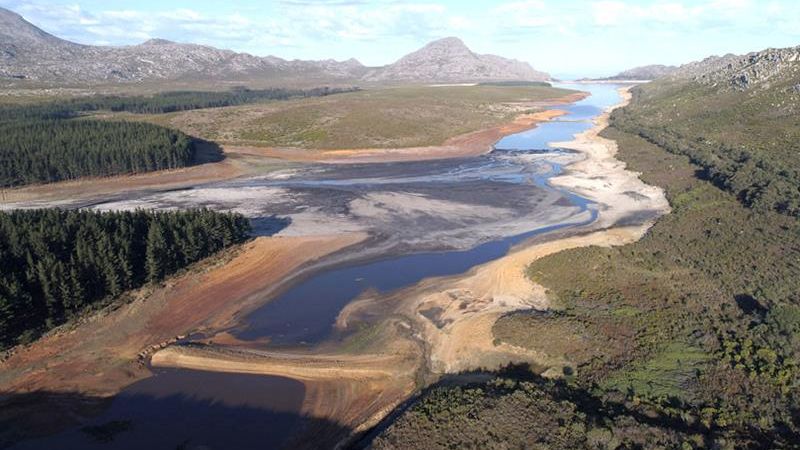With stablecoins gaining traction and regulation improving, African merchants may be nearing a crypto tipping point. Here’s why 2026 could mark a shift from hesitation to adoption.
Cape Town dam levels drop below 21% for the first time in 2018

Sure, those Day Zero plans may have been shelved in the “2019’s going to totally suck” folder but it doesn’t mean Cape Town’s completely drought-free just yet.
According to the City’s latest dam level report, total surface storage has dipped below 21% for the first time this year.
Remarkably, this means that the City has used only slightly more than 10% in total between 1 January 2018 and 16 April 2018.
Still, at present, both the Theewaterskloof and the Voëlvlei dams remain below 15%. The former is just 0.4% above its 10% threshold, while the Voelvlei meekly stands at 13.9%.
The City’s four other large dams remain above 40%.
And the blame goes to warmer weather, evaporation, and higher consumption.
Yes, you, Capetonians.
Daily consumption is back up to 542-million litres across all 14 of Cape Town’s reservoirs.
“Although the majority of our water users are doing their best to lower usage to 50 litres per day, there may be some whose usage still fluctuate according to the weather,” chimed Cape Town deputy mayor Ian Neilson in a press release.
“We need to reduce our total consumption to 450 million litres per day to keep within the allocation provided to the City by the National Department of Water and Sanitation.”
That warm weather is set to change, at least according to short-term forecasts.
Rain is hurtling towards the peninsula Wednesday, in addition to some more cloud bursts this weekend. However, the City’s data suggests that April has been notably dry thus far.
Newlands has seen just 18.5mm of its monthly 123.6mm average, while Table Mountain’s Woodhead reservoir received less than 20% of its usual monthly bounty.
And to really accentuate the issue, the Theewaterskloof catchment area has received just 0.2mm this month. Yes, that’s one-fifth of a millimetre. Usually 56.4mm falls within its reach throughout April’s 30 days.
Feature image: City of Cape Town

